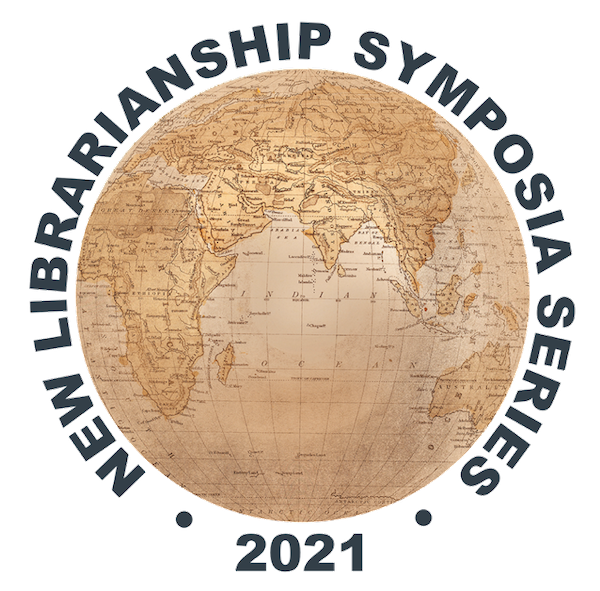Theorizing Library Diplomacy in the US international relations and library and information studies context
Loading...
Submission Type
Creative Format Contribution
Symposium Selection
International influences
Keywords
Library Diplomacy; Cultural Diplomacy; International Librarianship
Abstract
Libraries, museums, and cultural centers have long been linked as cultural platforms for cultural diplomacy and foreign policy (Mariano and Vårheim, 2021). Cultural diplomacy and international cultural relations enable governments and civil society institutions to communicate culture, values, and ideas for diplomacy and mutual understanding with foreign partners such as foreign governments and the foreign public (Cull, 2008; Gienow-Hecht and Donfried, 2010).
Fragmented literature and research scholarship talk about libraries in cultural diplomacy, particularly historical developments. Libraries concerning cultural diplomacy consist of various cases studies, for instance – the use of books and publishing (Cavell, 2009; Dalton, 2007; Laugesen, 2010; Maack, 2001; Makinen, 2001; Mokia, 1995; Morinaka, 2019; Prieto, 2013; Richards, 2001); language and cultural programs (Glant, 2016; Guth, 2008; Hernández, 2018; Hubbert, 2014; Kornphanat, 2016; Laugesen, 2010; Maack, 2001; Mokia, 1995; Morinaka, 2019; Prieto Gutierrez, 2015; Prieto, 2013; Robbins, 2007); literacy and educational components (Moore and Mann, 2020; Prieto Gutierrez and Segado Boj, 2016; Richards, 2001), and librarianship and library practices (Line, 2003; Lor, 2008; Richards, 2001) to establish relationship, understanding, and cooperation with foreign governments, institutions and publics. However, no library and information studies research scholars have attempted to theorize the concept of library diplomacy compared to the growing research attention and efforts of museum studies scholars in theorizing museum diplomacy (Cai, 2013; Clarke et al., 2017; Eggeling, 2017; Grincheva, 2019; Hoogwaerts, 2012). As libraries have constantly been changing their role in the 21st-century international environments, it is essential to explore various theoretical lenses and conceptual variables applicable in studying library diplomacy.
Therefore, the primary purpose of this paper is to map the international influence of the concept of library diplomacy within the theoretical terrain of IR and LIS context with the following specific aims:
1. To identify the theoretical lenses in library diplomacy
2. To describe the library diplomacy in LIS practice;
3. To explore the gaps in library diplomacy research scholarship
4. To develop a conceptual proposition on library diplomacy;
5. To present limitations and opportunities about the concept of library diplomacy towards new librarianship for future research.
Theorizing Library Diplomacy in the US international relations and library and information studies context
Libraries, museums, and cultural centers have long been linked as cultural platforms for cultural diplomacy and foreign policy (Mariano and Vårheim, 2021). Cultural diplomacy and international cultural relations enable governments and civil society institutions to communicate culture, values, and ideas for diplomacy and mutual understanding with foreign partners such as foreign governments and the foreign public (Cull, 2008; Gienow-Hecht and Donfried, 2010).
Fragmented literature and research scholarship talk about libraries in cultural diplomacy, particularly historical developments. Libraries concerning cultural diplomacy consist of various cases studies, for instance – the use of books and publishing (Cavell, 2009; Dalton, 2007; Laugesen, 2010; Maack, 2001; Makinen, 2001; Mokia, 1995; Morinaka, 2019; Prieto, 2013; Richards, 2001); language and cultural programs (Glant, 2016; Guth, 2008; Hernández, 2018; Hubbert, 2014; Kornphanat, 2016; Laugesen, 2010; Maack, 2001; Mokia, 1995; Morinaka, 2019; Prieto Gutierrez, 2015; Prieto, 2013; Robbins, 2007); literacy and educational components (Moore and Mann, 2020; Prieto Gutierrez and Segado Boj, 2016; Richards, 2001), and librarianship and library practices (Line, 2003; Lor, 2008; Richards, 2001) to establish relationship, understanding, and cooperation with foreign governments, institutions and publics. However, no library and information studies research scholars have attempted to theorize the concept of library diplomacy compared to the growing research attention and efforts of museum studies scholars in theorizing museum diplomacy (Cai, 2013; Clarke et al., 2017; Eggeling, 2017; Grincheva, 2019; Hoogwaerts, 2012). As libraries have constantly been changing their role in the 21st-century international environments, it is essential to explore various theoretical lenses and conceptual variables applicable in studying library diplomacy.
Therefore, the primary purpose of this paper is to map the international influence of the concept of library diplomacy within the theoretical terrain of IR and LIS context with the following specific aims:
1. To identify the theoretical lenses in library diplomacy
2. To describe the library diplomacy in LIS practice;
3. To explore the gaps in library diplomacy research scholarship
4. To develop a conceptual proposition on library diplomacy;
5. To present limitations and opportunities about the concept of library diplomacy towards new librarianship for future research.


